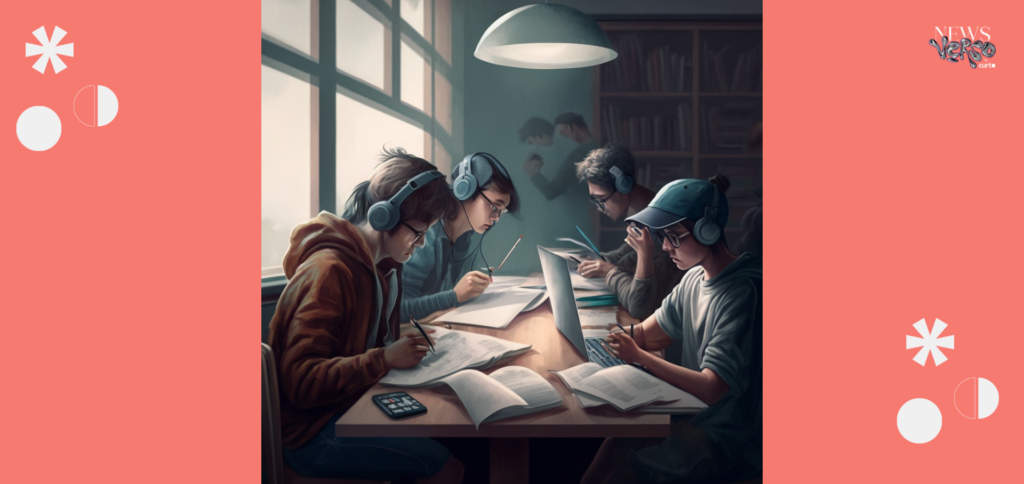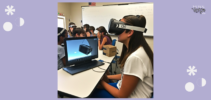According to the course designer and coordinator, Aguilar Selhorst, the project is characterized by integration between students and teachers even in remote teaching. In an interview with Newsverse, Selhorst said that “the method emerged due to the difficulty in interacting with EAD. This became very clear during the pandemic. We feel like the scattered student, the person who doesn't turn on the camera, the person who is embarrassed. We realized that this was much bigger than we imagined.”
ADVERTISING
The metaverse used by PUC is Gather Town, and it is voxelized. In other words, without hyper-realistic avatars.
The aesthetics are very reminiscent of some RPG games. Inside the environment, the physical space of the university is replicated. All spaces are interactive and can be accessed by students.
“We designed the campus within the platform. The entrance door, the fountain, the library, academic and administrative spaces. Here the proposal is not to lose those interactions that we had in the classroom”, says the coordinator.
ADVERTISING
When accessing the space, the student can choose to use private rooms in groups, stay alone in a library, and, of course, attend classes inside a type of auditorium. Asked about the main challenges in implementing this new teaching method, combining educational trails with a gamified environment, Selhorst replied:
“The biggest difficulty in implementing the metaverse lies with teachers. We have to digitize these people. It's not such a difficult job because we've been in person for years and in the metaverse now we have the stage we have in the classroom. He talks and no one gets in the way. The person raises their hand and they decide whether or not the person will speak. There is this interaction almost identical to the classroom, but now digitally”

Currently, around five thousand people have accessed the course information website, curious about the proposal, according to the coordinator. Of this total, Selhorst hopes to attract 288 people to the learning path, interested in training in the economy of digital influence.
The university set the goal of closing a class of the course to start the academic calendar in April.
ADVERTISING
What does a student think about the possibility of a course in the metaverse?
We spoke with Information Technology student, Vitor Mota, to find out if this degree format would suit him. We asked the young man, an enthusiast of new technologies, if he would be willing to study with this methodology. For him, the fact that the metaverse is not consolidated still scares him.
“It’s something in development, you know? Everyone is learning, no one really knows how to do it. It's very early on. So I fear for a degree with something that is still in the development phase,” she says.
We also asked what a university should do to convince him that studying within the metaverse is viable, and he responded:
ADVERTISING
“I would trust the course that perhaps had a partnership with one of the companies that are developing the metaverse. Like the company Meta and this university form a partnership and offer a course”, says the programmer.
Despite dealing with resistance from some university students, the coordinator of the first Brazilian course offered in the metaverse says that there is room for improvements. Regarding room for improvements and updates, we asked the designer about the possibility of putting the metaverse in a 3D and even more immersive format, perhaps even making access available through headsets.
According to him, in addition to the barrier that these tools are not accessible to most people, it is necessary to “mobilize a very large area of the university to help with this process of building the space”.
“This is not so simple, but it is a challenge that is linked to cost and not to a lack of competence or capacity. I know there is a lot to improve, but it is the best platform we have found within our aspirations”, concluded Aguilar Selhorst.
ADVERTISING
@curtonews Have you ever imagined taking a higher-level course within the #metaverse? This will be possible in a #graduation da #PUC ♬ original sound – Curto News






